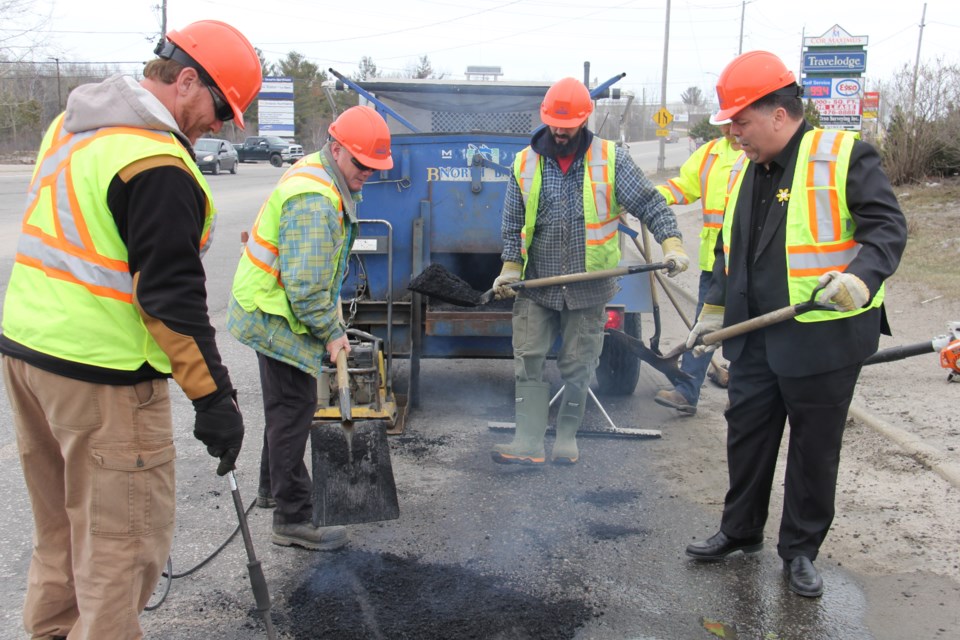North Bay has taken its fight against potholes to a "hole" new level this spring.
The machine is called the Bagella Asphalt Recycler, and it promises to save the city time and money, while doing a much better job of filling potholes.
In the past, a water-based cold mix asphalt was tossed into potholes, and in dry or optimal conditions, it worked...kind of.
Because the physical properties of the material do not allow it to harden, the material is porous which allows water to penetrate the surface causing the cold mix material to “fail” once it is saturated with water.
It's also extremely costly to purchase, and after a short period, the loose material is left on the side of the roadway which at times causes additional issues.
Now enter the "Recycler"! The machine reheats basketball-sized chunks of old asphalt material back to a workable state at 155 degrees Celsius. During the process, emulsifier is added which allows the asphalt to re-bond and harden during the packing and cooling process in the pothole.
"Wherever it's placed and packed, it hardens as opposed to the cold mix where it never really hardens," said Scott Franks, Roads and Traffic Manager.
Unlike the cold patch, the hot mix hardens and seals the surface which allows water to run off the surface rather than penetrate the material.
"To purchase one tonne of cold mix is roughly $140, but to reprocess the hot mix costs $12 a bag for the emulsion to put in the mix and $20 in propane and fuel to heat the asphalt back up."
The asphalt comes from various city road projects.
There are big labour savings also, as crews aren't constantly going back to repair the same hole.
"This process can sometimes last a whole year," says Councillor Jeff Serran. "With the cold mix you could get staff going out eight or nine times a year to fix the same pothole so you're saving a lot of money there as well."
The recycler is currently set up at the city yard on Franklin St.
After a batch is made, it's put into a “hot box” which is heated and used to transport the material the work area. The asphalt plant can recycle up to seven tonnes per hour. Other than the emulsion and fuel for the burner, the material is essentially free as the city has an extremely large stockpile of asphalt from various projects.
It works best if the road surface is dry, surface temperature is above zero and the hole is free of debris.
"We know a lot of people have complaints. In the wintertime it's snow removal and in the spring it's potholes."
To Serran, it's another tool in the box to help keep those complaints to a minimum.



